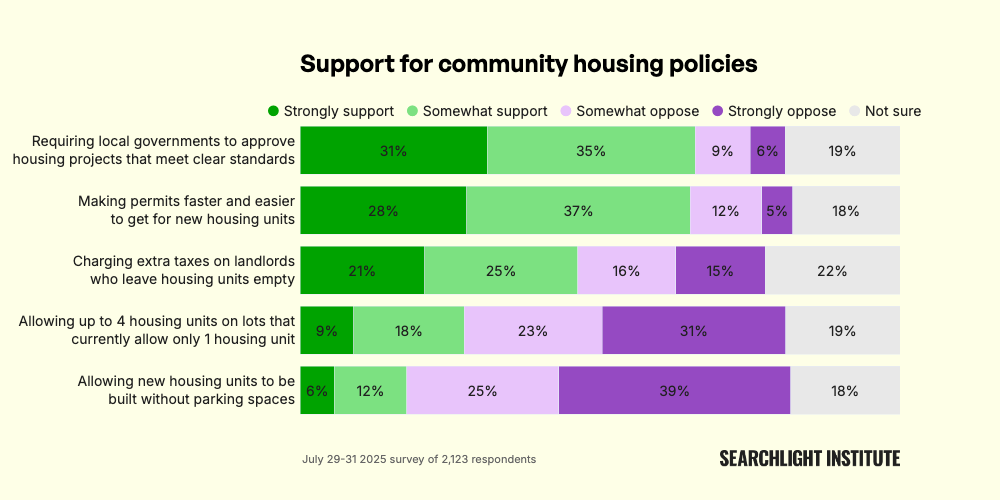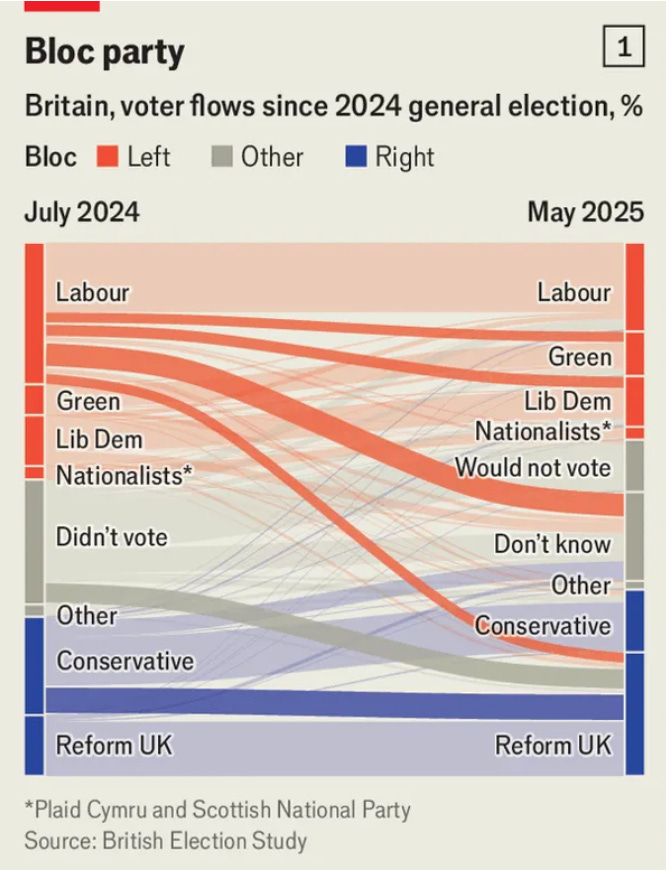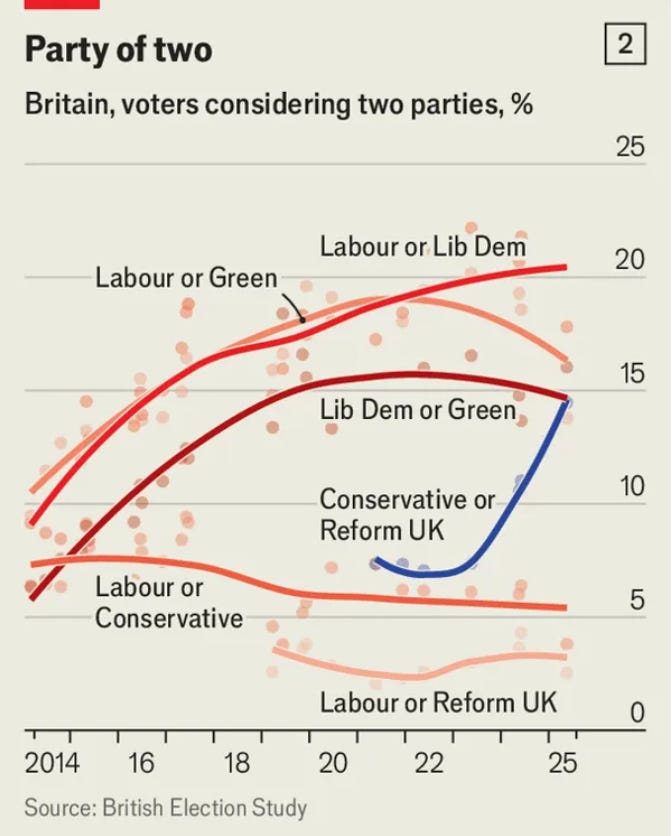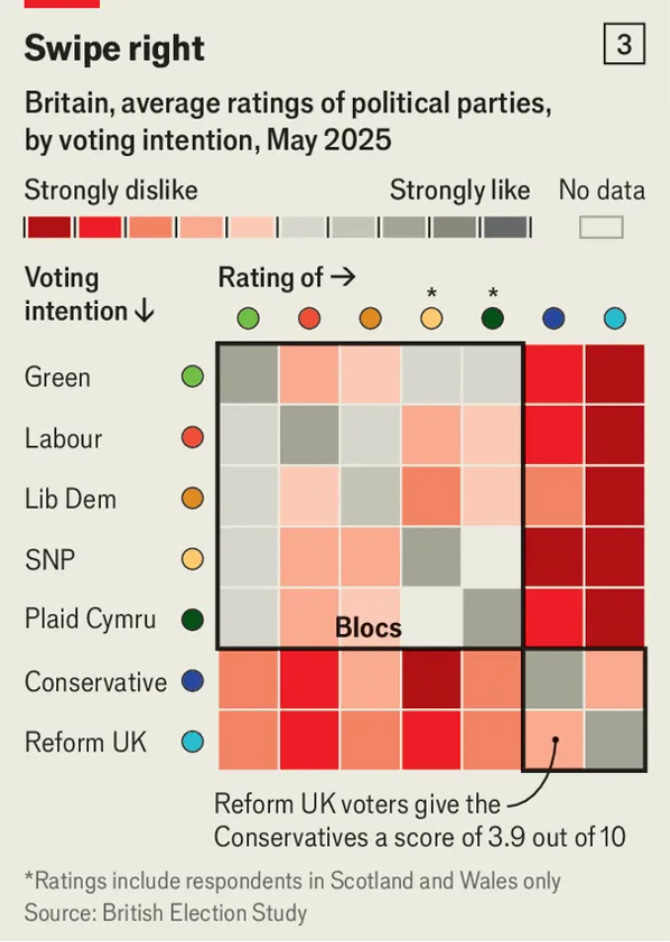TLP Weekend Edition (September 20-21, 2025)
What we're reading and checking out.

🇺🇸 “Franklin Delano Roosevelt’s First Inaugural Address.” At a time when American public life feels like a powder keg, intent on bursting at any moment, it’s worth remembering these wise words from a former American president, who sought to calm a country very much on edge when he took office.
I am certain that my fellow Americans expect that on my induction into the Presidency I will address them with a candor and a decision which the present situation of our people impel. This is preeminently the time to speak the truth, the whole truth, frankly and boldly. Nor need we shrink from honestly facing conditions in our country today. This great Nation will endure as it has endured, will revive and will prosper. So, first of all, let me assert my firm belief that the only thing we have to fear is fear itself—nameless, unreasoning, unjustified terror which paralyzes needed efforts to convert retreat into advance. In every dark hour of our national life a leadership of frankness and vigor has met with that understanding and support of the people themselves which is essential to victory.
Additional FDR reading—his Address to Congress in 1941 (after winning a third term) laying out the foundations for a healthy democratic state and his famous “Four Freedoms” that TLP uses as the foundation for its own work today:
For there is nothing mysterious about the foundations of a healthy and strong democracy. The basic things expected by our people of their political and economic systems are simple. They are:
Equality of opportunity for youth and for others.
Jobs for those who can work.
Security for those who need it.
The ending of special privilege for the few.
The preservation of civil liberties for all.
The enjoyment of the fruits of scientific progress in a wider and constantly rising standard of living.These are the simple, basic things that must never be lost sight of in the turmoil and unbelievable complexity of our modern world. The inner and abiding strength of our economic and political systems is dependent upon the degree to which they fulfill these expectations.
Many subjects connected with our social economy call for immediate improvement.
As examples:We should bring more citizens under the coverage of old-age pensions and unemployment insurance.
We should widen the opportunities for adequate medical care.
We should plan a better system by which persons deserving or needing gainful employment may obtain it.
I have called for personal sacrifice. I am assured of the willingness of almost all Americans to respond to that call…
In the future days, which we seek to make secure, we look forward to a world founded upon four essential human freedoms.
The first is freedom of speech and expression—everywhere in the world.
The second is freedom of every person to worship God in his own way—everywhere in the world.
The third is freedom from want—which, translated into world terms, means economic understandings which will secure to every nation a healthy peacetime life for its inhabitants-everywhere in the world.
The fourth is freedom from fear—which, translated into world terms, means a world-wide reduction of armaments to such a point and in such a thorough fashion that no nation will be in a position to commit an act of physical aggression against any neighbor—anywhere in the world.
That is no vision of a distant millennium. It is a definite basis for a kind of world attainable in our own time and generation. That kind of world is the very antithesis of the so-called new order of tyranny which the dictators seek to create with the crash of a bomb.
🌎 “Why We Love Marx and Hate Environmentalists,” and “Marxology Gone Wild,” by Ted Nordhaus and Alex Smith. Nordhaus and company keep turning out intriguing posts over at The Ecomodernist. This important two-part contribution (part three still to come) highlights one of the main reasons why today's left is, well, not very left—to the detriment of both the left and the world.
The problem with the ecoleft today is not that they are hiding their communism behind a veneer of environmentalism, but rather that they are hiding their environmentalism behind a veneer of communism— they are red on the outside and green on the inside. This reverse watermelon politics reliably confuses capitalism with modernity, materialism with consumerism, and bohemianism with proletarianism.
The result is a class politics in which egalitarian elites, in the academy, NGOs, philanthropy, and the knowledge economy, wage economic war against the working classes. The new ecoleft revolutionary class demands regressive taxes, restrictions on consumption, and food, energy, and transportation policies that raise the cost of living for those least able to afford it—all justified by Malthusian claims that absent such measures, human societies will cross biophysical “metabolic” thresholds, resulting in apocalyptic consequences for humanity.
The core demands of the ecoleft are typically dressed up with a fig leaf of redistributionist socialism. The regressive nature of the new austerity will be leavened by redistribution, they insist, assuring that it is the rich, not the poor, who pay. But the tell that it is the “eco” and not the “socialism” that is in control here is that there is no clear theory as to how the post-capitalist ecoeconomy will produce economic surplus to distribute, or redistribute, fairly. It should not surprise that the most identifiably socialist features of the original Green New Deal—Medicare for All and a national jobs guarantee—were largely forgotten within months of Alexandra Ocasio Cortez’ election to Congress. By the time the Inflation Reduction Act passed years later, loudly trumpeted as a triumph of the activist Left, all that remained were green tax credits, with hardly a complaint from the erstwhile ecosocialists taking credit for its passage.
The old Marxist Left had a theory of the economy, how it produces surplus and value, and how both the quantity and quality of production changes as political economies evolve. The ecoleft has no such theory, insisting instead that less will be more and that new forms of connection, to each other and to nature, will make up for any material want. In place of a working theory of surplus value, the ecoleft offers little more than catastrophism and nostalgia for the feudal, pre-industrial past while proposing to impose ostensibly science-based ecological thresholds upon unwilling polities. Combining ivory tower nihilism with hostility towards the working class, reverse watermelon politics is both antithetical to anything that might be described as democratic socialism and disastrous for any prospect that the Left might succeed politically in the 21st century.
🏡 “What Americans Think About Housing,” by Searchlight Institute. TLP friends at the newly launched think tank focused on “supermajority” thinking for Democrats offer interesting new data on America’s housing crisis. What changes to housing policy do Americans currently support?
Right now, the biggest winners are proposals around streamlining permitting processes and getting housing built faster. At the top is requiring local governments to approve housing that meets their standards, with +51 support. This is despite 31 percent of respondents believing that such requirements would increase housing costs overall. Making permitting for new housing faster and easier also does well, with +48 support. Allowing housing to be built without parking spaces is by far the least popular at -46. Increasing the number of units per site from one to four (-27) and removing limits on how many housing units can be built in an area (-11) also do very poorly.
In an informed debate framework, where respondents were presented with arguments for and against a policy, requiring local governments to approve projects meeting standards within 60 days holds up, retaining plurality approval (42 percent support, 31 percent oppose), while eliminating single-family zoning performs poorly (27 percent support, 50 percent oppose).
Check out the full report and be sure to follow Searchlight’s future policy work!
🇬🇧 “The new battle for Britain: Once elections were fought between left and right. Now the main fight is within these camps,” from The Economist. The crack data team at The Economist presents fascinating work on the voter shifts that continue to roil British politics after Labour’s landslide victory in 2024:
Since the general election this volatility has continued. Labour’s support has fallen from 34 percent to 21 percent today, according to our polling tracker, while Reform has surged from 14 percent to 31 percent. That has led some to talk of a mass exodus of Labour’s working-class voters to Nigel Farage’s ranks. Yet the pattern of 2024 persists: most of the churn is voters shifting within the blocs of left and right, according to a BES analysis published on September 3rd (see chart 1).
Of the total of Labour’s vote in 2024, 9 percent has gone to the Lib Dems, 8 percent to the Greens, and 21 percent to a pool of voters who are undecided, but who say they dislike the right-wing parties above all. In all only 8 percent have gone to Reform. Roughly speaking, for each Labour defector who has shifted to the right bloc, you would expect that at least four are liable to remain in the left bloc. Meanwhile, the bulk of Reform’s gains have come either from deserting Tories, or from habitual non-voters.
The Economist’s deeper analysis of the data shows how entrenched and cohesive the blocs have become. First, in the past decade the share of Labour voters who say they are open to supporting another liberal party has surged while the proportion open to backing the Tories has fallen (see chart 2). Second, in favourability surveys, voters tend to say they look warmly on the other parties in their bloc, and strongly dislike those in the opposing camp (see chart 3). Third, when voters are presented with choices of prime minister, those supporting the left bloc overwhelmingly back Sir Keir Starmer over either Kemi Badenoch, the Tory leader, or Mr Farage; for voters on the right, the inverse is true.
🎶 Real Warmth, by Joan Shelley. A new Joan Shelley release always puts a smile on your face. One of the best young folk singer-songwriters around, Shelley and her pals—including her husband Nathan Salsburg, Ben Whiteley, Matt Kelley, Doug Paisley, and Tamara Lindeman, among others—have 13 lovely new tracks for your weekend enjoyment. Fans of Fairport Convention and Richard Thompson’s solo work will really appreciate this Kentucky-based ensemble.
Here’s the new record opener, “Here in the High and Low.”









Residential parking won't matter when the reverse watermelons take the cars away.
Maine has rank choice voting. In our congressional several years ago the candidate who received the second largest number of votes won. Rather than having each local town count their votes and send it to a central point, the ballots are collected, recounted according to a confusing formula and weeks later someone tells us who won.
'The people who cast the votes don't decide an election, the people who count the votes do.'
Joseph Stalin